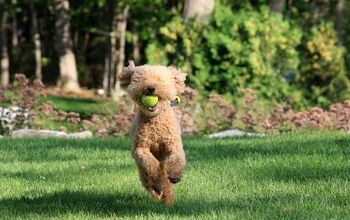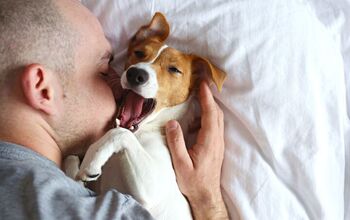Puppy Blues is a Real Thing – Just Like Baby Blues, Study Shows

There is no doubt that puppies are super cute. When you first bring a tiny little bundle of fur into your home, it is a cause of great joy. But sometimes, life can change in many ways as you care for your new pet. A latest scientific study published in Mental Health Research reveals that almost half of all dog owners can experience something reminiscent of the famous “baby blues” – only related to puppies instead of babies.
Many owners will experience anxiety, frustration, or weariness during those first steps of their pet’s puppyhood. The study that was conducted at the University of Helsinki confirmed that owners will experience a short-term drop in mood, and great melancholy, while their pet is a puppy - something that is akin to the famous postnatal “baby blues”. This is because caring for a puppy gives rise to a variety of worries and fears, anxiety and frustration, and difficulty bonding.
"The study found that these so-called 'puppy blues' manifest in three ways: anxiety, frustration, and weariness. These often occur concurrently, but in some cases, one or two of the three may be particularly prominent," said psychologist and doctoral researcher Aada Ståhl.
When a puppy owner is anxious, their thoughts “are colored by concerns” about the wellbeing of their pet, and how they are developing. They can also be worried that they are not adequately looking after the fragile little being. If something doesn’t pan out, the owner would often blame themselves for it.
What is more, as a result of the strain and the challenges of caring for a puppy, a puppy owner might become frustrated even further. In the initial stages, they might discover that it is difficult to build an emotional bond with the puppy, which would only make everything much more difficult.
All of this makes puppyhood exhausting and very taxing mentally and physically. Owners could experience a lack of sleep and increased tiredness and anxiety.
"Just under half of owners report having had significant negative experiences during their dog's puppyhood phase, with only about a tenth reporting the most severe levels of strain. This is in line with the prevalence of postnatal depression. However, the negative feelings fade relatively quickly," says Professor Hannes Lohi.
But the study now offers a key insight – the more time that passed since puppyhood, the more positively owners remembered it. This means that the negative emotional content of these memories “fades” as time passes.
All these results were collected by examining the experiences of over 100 different dog owners, all of whom experienced emotional strain after bringing a puppy home. The survey was specifically developed to measure “puppy blues”. It collected specific responses from over 2,000 dog owners, ensuring the reliability of the survey.
"Capturing the phenomenon in a measurable form is important if we are to better understand its characteristics, prevalence, and duration. This will also allow us to improve understanding of the factors that may predispose owners to or protect them from the 'puppy blues,' which will help us to develop prevention and support measures," added Ståhl.
The study offers a crucial new glimpse into the relationship between a pet and an owner. Exploring the puppy blues phenomenon will help raise awareness and prepare future owners for the challenges of puppyhood – as there are quite a few that come together with all that cuteness.

A proud mama to seven dogs and ten cats, Angela spends her days writing for her fellow pet parents and pampering her furballs, all of whom are rescues. When she's not gushing over her adorable cats or playing with her dogs, she can be found curled up with a good fantasy book.
More by Angela Vuckovic






















